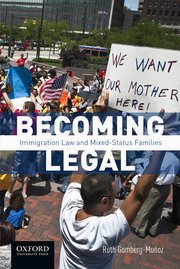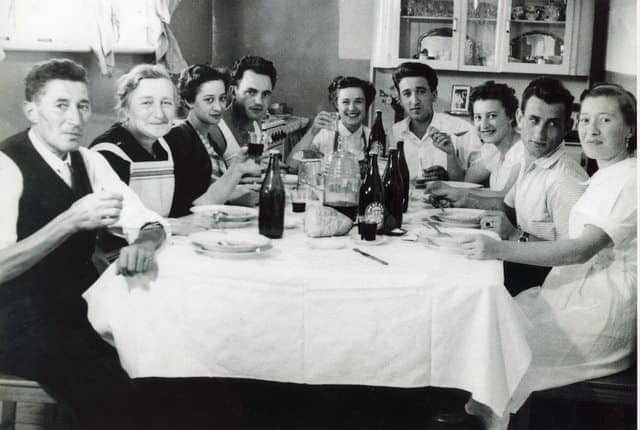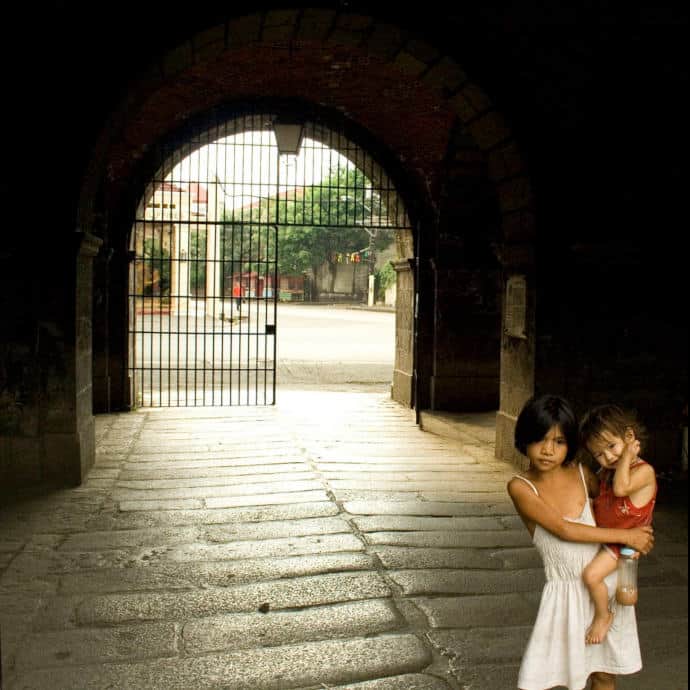The cover-image of Ruth Gomberg-Munoz’s book Becoming Legal: Immigration Law and Mixed Status Families depicts a group of protestors holding placards – one which reads ‘We want our Mother here’. An American flag is visible in the mix of this diverse group of people. Some of the visible faces appear frustrated, even angry. As the politics of migration (forced or otherwise) coupled with the rise of the right-wing feature large in a number of contexts, this scene of protest is not an unfamiliar one. It is a scene that could be located in Trump’s America (the site of this book), Brexit Britain or a France or Greece unable to deal with the movement of people seeking refuge through their countries. It is an image signposting the steadfast need of the undocumented to achieve more recognition and support in what is otherwise a complex category of being with diminutive rights.
Becoming Legal is a finely textured ethnography which does justice to the besieged lives of families of mixed legal status in the US.
In what is an eloquently written book, readers are allowed to glimpse into the lives of a number of mixed status families as they navigate a very complex immigration system in order to become ‘legal.’ The book thus documents the anxieties of mixed families – their fears and the barriers to everyday life, the blame, guilt and shame they feel at being undocumented, the lengthy periods of separation they undergo during the legal process and indeed, the joy of being reunited and living together once legality is secured. It is all here, all captured in a poignant but ethically attentive manner, as Gomberg-Munoz brings both her interlocutors and readers into conversation with the bleak reality of the US immigration process. Key to Gomberg-Munoz’s thesis is the threat that an unwieldly, unfair immigration process poses to family unity, and how destructive the process of becoming legal can be to family relationships. Separation, isolation, poverty and deprivation and family breakdown often ensuing from attempts to become legal.
 The book is divided into a number of key sections which mirror some of the (multifarious) journeys of mixed status families. The author opens a number of the book’s chapters with the stories of her research participants – it is through these often beautifully written vignettes that we come to understand the exclusions, disavowals and negations of an immigration process with an ethos carved out of colonialism and contemporary US foreign policy. In seven chapters, we learn about the complexities of the immigration process, the historical moorings of the system in colonialism, the petition process, imprisonment, hardship and poverty, deportation and precarity and life for those who manage to become legal.
The book is divided into a number of key sections which mirror some of the (multifarious) journeys of mixed status families. The author opens a number of the book’s chapters with the stories of her research participants – it is through these often beautifully written vignettes that we come to understand the exclusions, disavowals and negations of an immigration process with an ethos carved out of colonialism and contemporary US foreign policy. In seven chapters, we learn about the complexities of the immigration process, the historical moorings of the system in colonialism, the petition process, imprisonment, hardship and poverty, deportation and precarity and life for those who manage to become legal.
The success of the book is in its ability to bring the reader into these spaces, accompanied by couples like Enrique and Anya, Cynthia and Hector, Marco and Tanya, Pamela and Victor, and Rene and Molly. Through many of their eyes we see how deep their attachments run to the US, how connected and anchored they are in the places they live, but yet how marginalized they are – often working in very low paid jobs, afraid to travel inter-state for fear of detection, unable to return to their home countries to attend to elderly or sick relatives.
Many of Gomberg-Munoz’s research participants live lives beleaguered by the weight of being un-documented. What might seem like the obvious route out of this becoming legal means entering a fraught space of possibility.

Becoming Legal is an important instructive book particularly in light of Trump’s immigration ban. It is important in its illuminating of the challenges of the process of becoming legal in the US context and also in its highlighting of how paternalistic and inconsistent US immigration policy and law can be. US immigration law is a bedfellow of US foreign policy, an increasing concern for all of us. In particular, Gomberg-Munoz’s argument that US humanitarian visas are closely linked to US foreign policy is key in a time where we are witnessing the widespread uprooting of people due to conflict in the Middle East. At moments in our very recent history, countries such as El Salvador and Mexico have seen the drastic need for individuals and families to secure refuge elsewhere, however, US humanitarian visas have not been readily administered to people from such countries. Further, links to US sponsored violence in a number of nation-states complicates the process of humanitarian aid and visa support from the US.
Such is the power of analysis in Gomberg-Munoz’s book in its ability to inspire understanding of a very complicated but inconsistent immigration process in the US. It is also a book of stories-of comings and goings, of separation and loss, of reuniting and joy. It is therefore a timely book which grasps the process of becoming legal in all of its human-ness and in all of its hideous complexities.
Gomberg-Muñoz, Ruth. 2016. Becoming Legal: Immigration Law and Mixed-Status Families. Oxford: Oxford University Press. 192 pp. Pb $19.95. ISBN: 9780190276010.
**************
Featured image by jimpg2_2015 (flickr, CC BY-SA 2.0)


